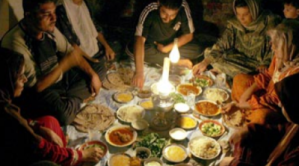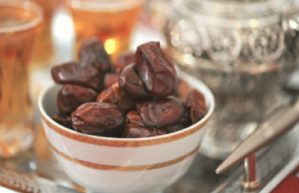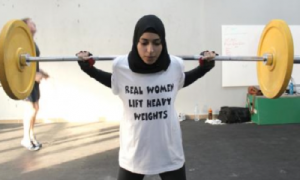#ramadanproblems
Sparked a flurry of twitter comments and musings, some hated it and some loved it for me it highlighted a community of people who may not be optimising their training during the fast inspiring me to write about it…
- What is Ramadan? The 9th month of the Islamic calendar; when Muslims worldwide fast during daylight hours, sunrise to sunset for 29 or 30 days. This means nothing is consumed including food, drink, cigarettes or sexual relations until sunset. The exceptions are those that are pregnant, breastfeeding, ill, travelling, diabetic or having a menstrual bleed.
- Why do it: Fasting is said to redirect the heart away from worldly activities, cleanses the soul and frees it from harmful impurities. Ramadan also teaches Muslims how to better practice self-discipline, self-control, sacrifice, and empathy for those who are less fortunate; thus encouraging actions of generosity and compulsory charity. This in turn brings about spiritual reward. Fasting has also been shown to have some health benefits see more below.
- When do you eat/drink? The first meal of the day before sunrise is called Suhour and the first meal after sunset is an evening meal called Iftar with further meals during the evening and night . It is vitally important to anyone of an active nature to eat and hydrate well if they plan to exercise during Ramadan.
- Health Benefits: Improved Alertness and reduced stress levels due to reduction in cortisol and lowering of cholesterol, blood sugar and weight loss where the body burns fat for fuel. (Source – NHS choices) A detoxification process occurs too by releasing fat reserves which then release accumulated toxins.
- Health Risks: Dehydration, headaches from dehydration or withdrawal from caffeine/nicotine etc, feinting, heartburn due to reduced stomach acid, weight gain from eating wrong things and gorging.
Sounds pretty tough right, agreed I would be reluctant to give up water and coffee…. especially in our society where working hours are not adjusted like in other countries during this period.
So below I give you a list of my top tips to survive Ramadan as a fitness freak. I am not claiming to have had any personal experience in fasting and training but have worked with Muslim clients who have, with great results. Please feel free to give comments or feedback on what I offer below, or info on what has worked for you.
1. How To Train?
Strength training aim to do an hour or less, using bang for your buck compound exercises such as squats, deadlift, military press, chest press, and rows. Go for maximum effort in minimum time, avoid all un-nessercary assistance exercises, you are simply trying to maintain or gain muscle mass.
Cardio Avoid it or keep it short max twice per week, HIIT intense sessions of 10 minutes – 30 minutes would be plenty to protect muscle mass and accelerate fat loss. The best time to do cardio would be before Suhoor, the pre-dawn meal as you are then able to replenish fluids and muscle stores before the fasting of the day.
2.How to eat & recover ?
?
Eat for recovery and rehydration.
Small Frequent meals including all major food groups i.e. carbs, fats and proteins.
Drink minimum of 2 litres of water through the evening and early morning to avoid headaches, help with digestion and rehydration of your muscles.
Use ample fruit and veggies as the water contained in these contribute to rehydrating your system. If you struggle to eat enough foods try having some use liquid foods like milk, protein shakes, or smoothies with banana, yoghurt and oats for example.
The breaking of the fast traditionally includes scoffing dates and water.
Nutritionally dates are very unique containing very high levels of potassium (much more than a banana), a key re-hydration mineral and a special carbohydrate blend that enhances hydration above and beyond water alone, blending glucose and fructose which are beneficial for short and long-term energy.
They also have a special nutrient called beta D-glucan that is a soluble fiber that can enhance satiety and digestive health. So basically when you eat a date and water for iftar your body gets hydrated again much faster than with water alone
Sneak a Power Nap during the day where possible, as you do become sleep deprived and this allows your body time to repair and recharge.
3. When to workout?
 Pre-Iftar Exercising before Iftar is possible but not ideal due to your dehydrated body so muscle function may not be optimal. That said I have worked with clients training at this time and we simply focus on technique, lifting heavy with low reps and rest well between sets to avoid dizziness. You then also have the rest of the evening to rehydrated and replenish your body.
Pre-Iftar Exercising before Iftar is possible but not ideal due to your dehydrated body so muscle function may not be optimal. That said I have worked with clients training at this time and we simply focus on technique, lifting heavy with low reps and rest well between sets to avoid dizziness. You then also have the rest of the evening to rehydrated and replenish your body.
Post-Iftar You have broken the fast and started to hydrate your body, energy levels should be better and you still have plenty of time to recover and eat more so this would be the ideal time to train.
Olympic Weightlifter Aman Al Haddad (see pic right) says Personally, as an athlete, I have had success in the past three years training a few hours after Iftar and have not had any dizzy spells, loss of strength or weight gain during Ramadan.
Suhour Best time for cardio
For Example (adapted From Stronglifts.com) Exercise can be done either before or after Iftar see below at 7 or 9pm not both!
7pm: Lift weights. 3-4 compound exercises for 1 hour max.
8pm: Breakfast. Dates & Water + Low carb protein shake (if exercising a 9pm) + Proteins & carbs : tomato based sauce, ground meat sweet potato ( If already exercised at 7pm).
9pm Lift weights. 3-4 compound exercises for 1 hour max.
10pm: Meal 2 proteins & carbs: tuna, brown rice, pineapple.
11pm: Meal 3 light pre-bed meal. Cottage cheese, berries, ground flax seeds.
11:30pm: Bedtime.
3:30am: Breakfast: eggs, veggies, meat. Back in bed after 1st prayer.
7am: Wake up, get ready for work
1pm: 30 minutes nap
5pm: 1 hour nap pre-workout
So in summary, the best time to strength train is after Iftar, best time for cardio is at Suhour, train weights more than cardio, ensure you recover well with healthy food from all three macronutrients carbs, fats and proteins. Drink plenty of water overnight and try to sneak in a few power naps during the day.
Try our 2 recipes for Iftar meals here Kebab Massalam Click HERE for recipe and Kushaf/Koshaf a great rehydration drink click HERE for recipe
Most of all reap the benefits! Of a potentially leaner and cleansed body. Turn #ramadanproblems into #Ramadanrewards
Sources:
Muslimbodybuilding.com: http://muslimbodybuilding.com/weightlifter-aman-al-haddads-guide-to-ramadan-training/
Suhaibwebb.com: http://www.suhaibwebb.com/personaldvlpt/worship/fasting-ramadan/the-ramadan-nutrition-and-workout-plan-for-success-by-rehan-jalali-the-protein-shaikh/
Stronglifts.com: http://stronglifts.com/ramadan-weight-lifting-training-build-muscle-lose-fat/
NHS http://www.nhs.uk/Search/Pages/Results.aspx?___JSSniffer=true&q=ramadan
Wikipedia http://en.wikipedia.org/wiki/Ramadan
